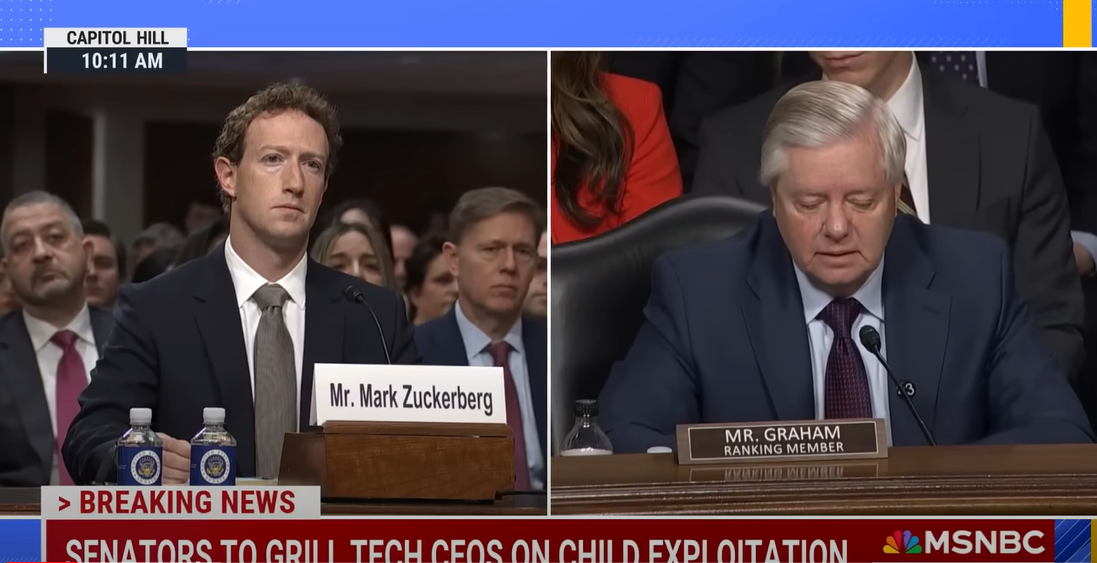The Senate Judiciary Committee convened a hearing on Wednesday to address the profound impact of social media on young people, particularly in regard to risks of sexual exploitation and predatory behavior. CEOs from five major companies (Discord, Meta, Snap, Twitter, TikTok) faced tough questions about the mental health crises and real-world risks linked to their platforms. These Senate hearings underscore an increasing legislative and societal impetus to safeguard youth in the digital realm as well.
Central to the hearing were the emotional stories of families whose lives have been upended by the darker aspects of social media. From exploitation to tragic losses, their stories injected a palpable urgency into the proceedings. Mark Zuckerberg of Meta and Evan Spiegel of Snap extended personal apologies in front of the entire chamber, though Zuckerberg was noticeably pressured to do so by being made to confront the grieving families directly. Zuckerberg was in the crosshairs of Lindsey Graham’s wrath as the senator directly accused the Meta CEO: “you and the companies before us have blood on your hands”. The audience cheered when this grave assertion was made.
The CEOs defended their platforms, citing various safety tools and collaborations with nonprofits and law enforcement. However, this did little to assuage the concerns of lawmakers and advocates, who argue that such measures fall short of addressing the systemic issues at play. Zuckerberg was once again the target when he was forcefully questioned about Meta’s internal valuation of young users and its approach to user data and content monitoring.
The hearing also delved into the geopolitics of social media, with TikTok CEO Shou Chew facing questions about the platform’s ties to China.
A recurring theme was the inadequacy of self-regulation by these companies. Senator Sheldon Whitehouse’s assertion that the platforms “really suck at policing themselves” resonated throughout the session. The push for legal accountability was strong, with Senators Lindsey Graham and Amy Klobuchar advocating for legislative action to address the “dark side” of these influential entities.
Perhaps most poignant was the presence and activism of youth advocates at the hearing, displaying the personal and generational impact of the issue. Their message was clear: children are more than a product.
The bipartisan unity in recognizing these challenges suggests a potential legislative path forward, albeit one fraught with complexities and competing interests. The urgency for change, however, has never been clearer, as the testimonies of affected families and the assertive stance of lawmakers signal a critical juncture in the governance of digital spaces.












